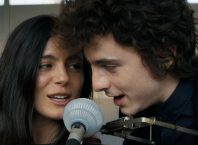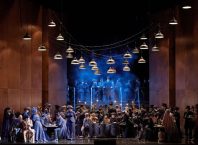
Ever wanted to get inside the mind of music programmers, trend-setting journalists, booking agents and producers? The Jerusalem Music Conference brought an impressive cohort to Israel from August 27 – 31, 2012 to meet and share their insights with Israeli musicians and the curious public in a conference that included lectures, panel discussions, and music showcases.
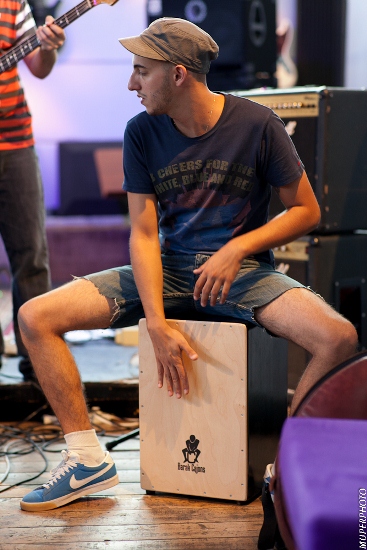
Listening in to several sessions, one common theme could be discerned: the importance of live concerts. To my mind, this is the conference’s great success, in bringing central people from the international music industry to Israel, where they heard Israeli musicians playing live. As a fan of the indie music scene in Israel, I was most curious about the encounter between the visiting music professionals and Israeli music. One of the conference sessions offered the opportunity to get a sense of how “they” hear the music, as a panel of guests – Patrick Joest (BMG Music), Matt McDonald (CMJ Music Marathon), Roel Coppen (Friendly Fire), Adrian Jolley (Mercury Records) – listened to a set of singles selected from among those sent in by intrepid musicians willing and eager to be critiqued in public.
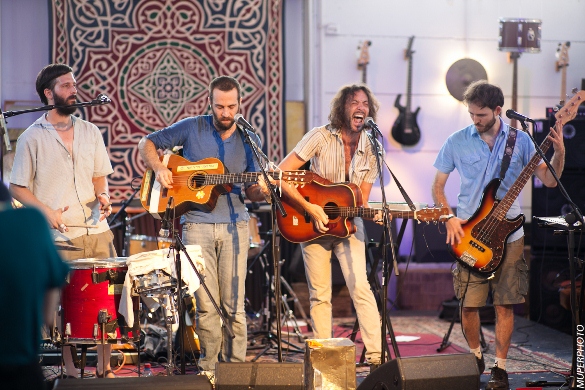
What are they looking for? As Matt McDonald said, “It starts with a good song.” “The live aspect,” as Roel Coppen phrased it, is a crucial element, “what does a band look like?” For some markets, like Patrick Joest, whose focus is on synch licensing (placing music in film, television, or advertising) there may be very different considerations: “It’s not always about artist-song.” Adrian Jolley struck a cheerful note, saying, “I’m here to hopefully find the next big thing out of Israel.”
What did they hear? First up was Ninet’s ICU.
The listeners different perspectives were apparent from the start, as Joest said, “The first 30 – 40 seconds could work well for TV/film.” “I like that she’s big here,” said Jolley, adding that he feels that this would be “more of an artist proposition than a song.” Coppen agreed, saying that “you need a presence to build something.” In other words, Israeli musicians who want to build an international career should take into account logging serious time abroad. Not great news for their Israeli fans, but perhaps a necessary aspect of making a living in music.
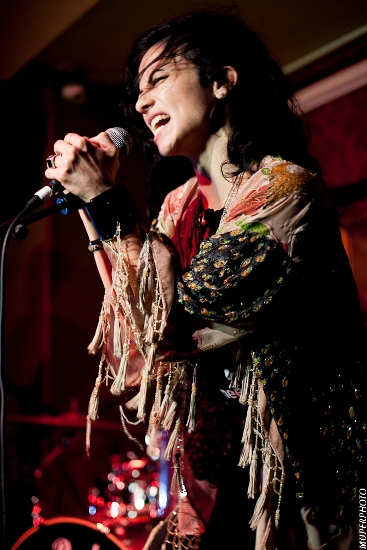
Cannons of Pedro Heartbroken Song elicited the comment from Matt McDonald that “sounds like it could be from anywhere.” There’s the rub: a song has to connect with the listener, but at the same time, international industry members looking at Israeli bands want to find a singer or group that has a distinct identity, something that feels like it comes from here. Later, after listening to Noria’s Last Sunset, McDonald expanded on this theme, saying, “Israeli doesn’t mean you have to throw in a Klezmer clarinet. The biggest thing I look for across the board is rising above the standard and wowing us.”
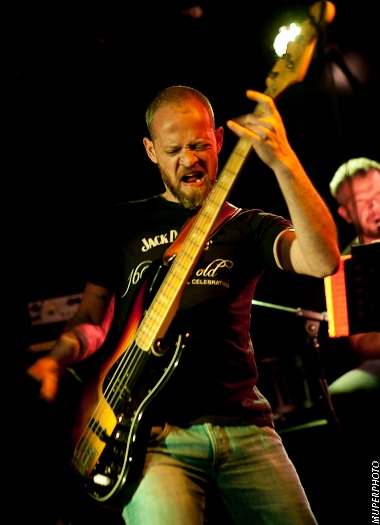
The session’s format – hearing one song from each artist – does not adequately reflect each artist, and is less suited to artists working with a song sequence. Efrat Ben Zur’s Robin, a track from her album of original compositions to the poetry of Emily Dickinson, seemed to give the listeners a feeling that as Joest put it, “I’d like to hear more by that artist,” but one song was not enough to convey the feel of either the album or artist. The panel’s responses to the songs were spontaneous and uncensored, if sometimes harsh, as was Jolley’s comment on the Township’s song Birds as something played in the background by “middle-aged people at a dinner party, thinking they’re bit cool.”
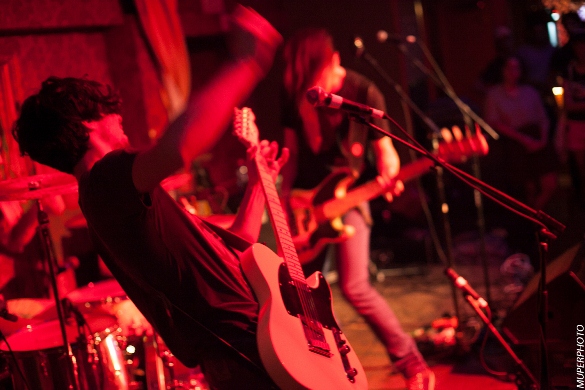
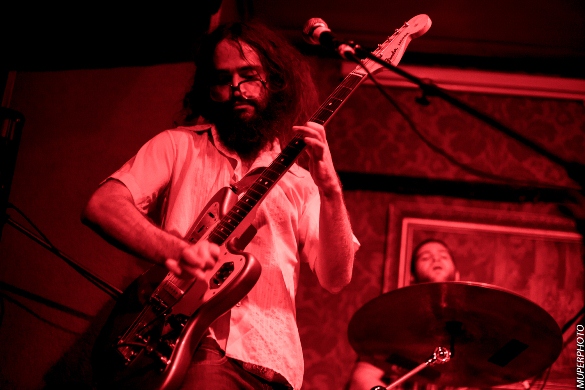
When they heard something they liked, the reaction was just as strong and direct. “I thought it was a great song,” said Jolley, after hearing Tzvika Force’s For Breaking My Heart, and Coppen summed it up for the group saying, “Well, I think we’ll all check it out.”
Izabo’s I Like It concluded the session with smiles all around. “I like it,” said Joest. McDonald concurred, “There are enough weird little elements in there to keep me interested.” “It feels like it’s coming from somewhere else,” said Jolley, “coming from here.”
The Jerusalem Music Conference was hosted and supported by the Jerusalem Municipality, the conference is presented by the JVP Media Quarter, Zappa Music Group, Oleh! Records, 2B Vibes, Afficoman Productions, Minhal Ginot Hair and supported by the Ministry of Tourism, Ministry of Foreign Affairs, United States Embassy, and the Embassy of the Czech Republic, and produced by Jeremy Hulsh and Orly Yaakobi.
The photos accompanying this article were taken by Victor MuperPhoto at the Jerusalem Music Conference showcase in Tel Aviv on Thursday, August 30, 2012. Enjoy the complete album at this link.




